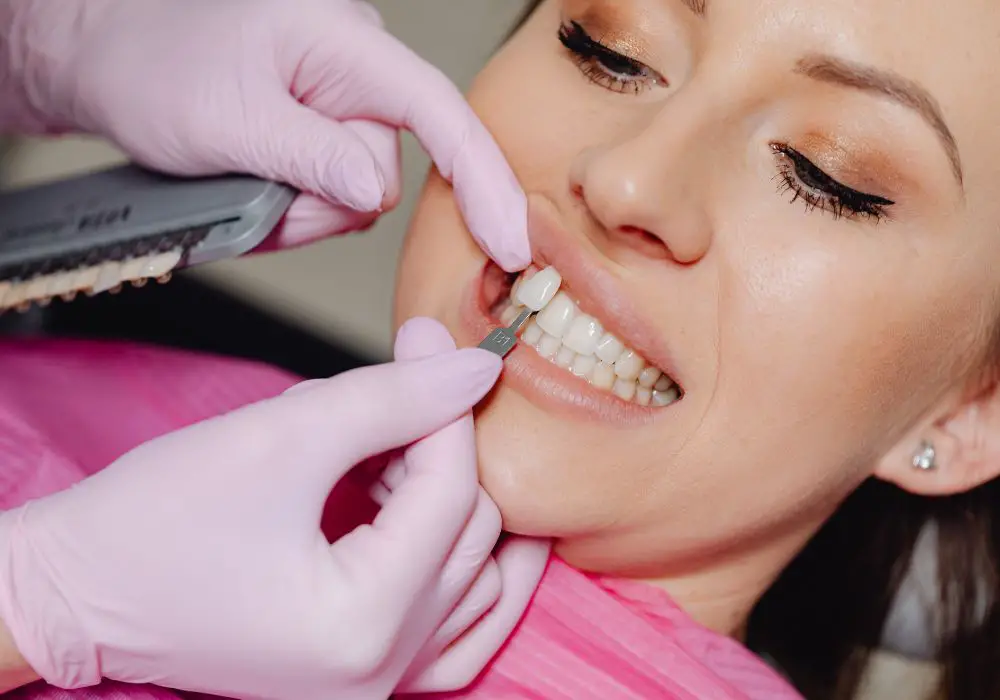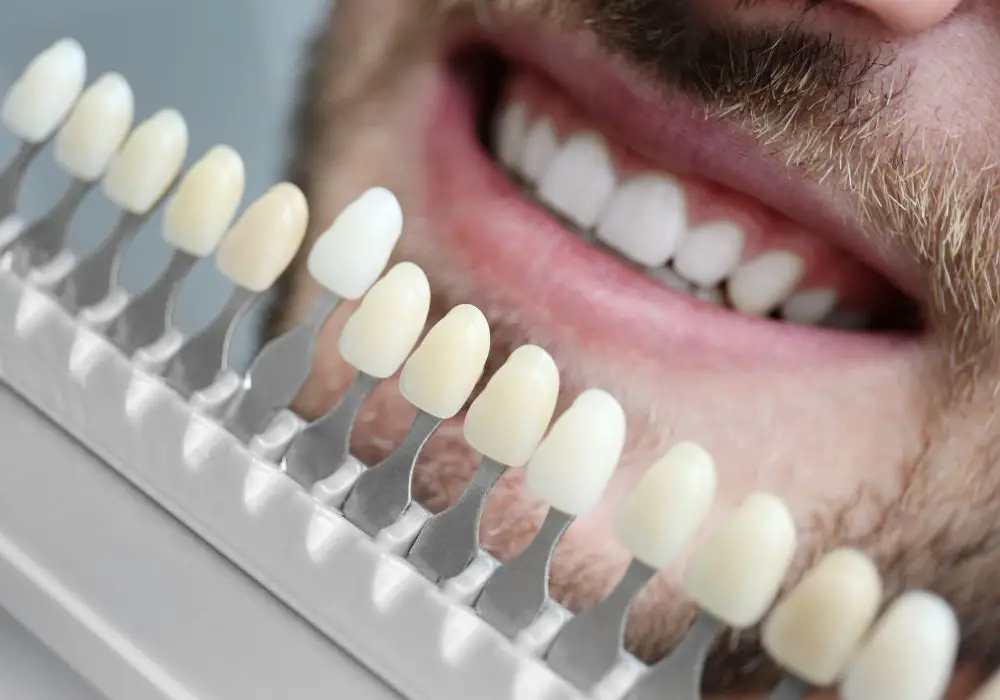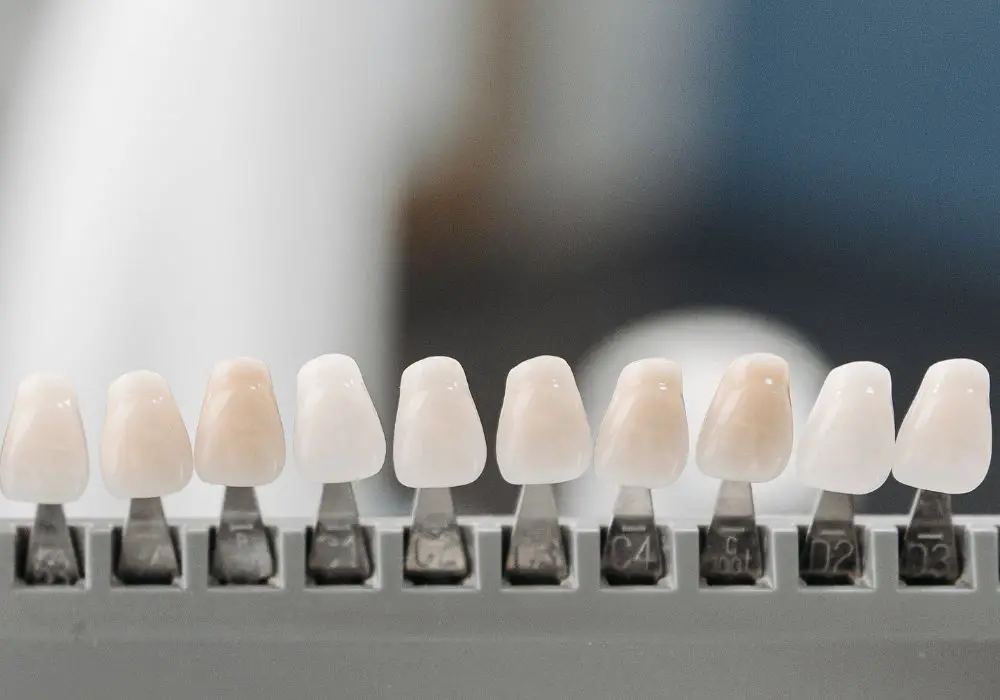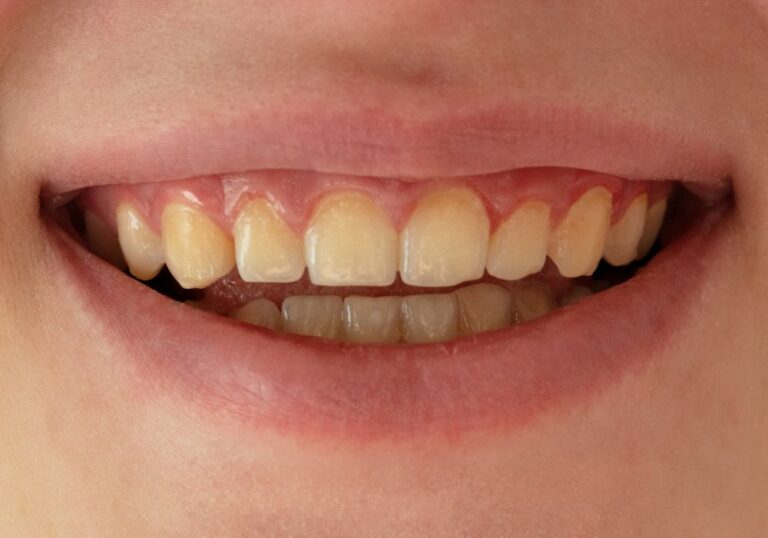If you’re wondering whether veneers are fake teeth, the answer is both yes and no. Veneers are not technically fake teeth, but they are a type of dental restoration that can cover up imperfections and improve the appearance of your teeth.
Veneers are thin, custom-made shells that are placed over the front surface of your teeth. They can be made from porcelain or composite resin and are designed to match the color, shape, and size of your natural teeth. Veneers can be used to address a variety of cosmetic issues, such as stains, chips, cracks, gaps, and misshapen teeth.
While veneers are not considered fake teeth, they do provide a similar function by improving the appearance of your smile. Unlike dentures or other types of false teeth, veneers are permanently bonded to your natural teeth and can last for many years with proper care. If you’re considering veneers as a cosmetic dental treatment, it’s important to talk to your dentist about your options and whether they’re right for you.
Understanding Veneers

If you are unhappy with the appearance of your teeth, veneers may be a solution to consider. Veneers are a cosmetic dental treatment that can improve the look of your teeth. In this section, we will discuss what veneers are and the different types available.
What Are Veneers?
Veneers are thin shells that are placed over the front of your teeth to improve their appearance. They are typically made from porcelain or composite resin and are custom-made to fit your teeth. Veneers can be used to cover up a range of cosmetic issues, including:
- Discolored teeth
- Chipped or broken teeth
- Gaps between teeth
- Misshapen teeth
- Teeth that are too small or too large
The process of getting veneers involves removing a small amount of enamel from the surface of your teeth to make room for the veneers. Your dentist will take impressions of your teeth to create the veneers, which are then bonded to your teeth using a special adhesive.
Types of Veneers
There are two main types of veneers: porcelain and composite resin. Here’s a breakdown of each:
| Type | Description | Pros | Cons |
|---|---|---|---|
| Porcelain | Made from a durable and stain-resistant material | More natural-looking than composite resin | More expensive than composite resin |
| Long-lasting | Requires more preparation of the tooth before placement | ||
| Composite Resin | Made from a tooth-colored material that is bonded to your teeth | Less expensive than porcelain | Not as durable as porcelain |
| Can be completed in one visit | More prone to staining than porcelain |
It’s important to discuss your options with your dentist to determine which type of veneer is best for you. Keep in mind that veneers are a cosmetic treatment and may not be covered by insurance.
Veneers Vs. Natural Teeth
When considering cosmetic dental procedures, it’s important to understand the differences between veneers and natural teeth. Here are some key factors to consider:
Material Comparison
Veneers are typically made from porcelain or composite resin, while natural teeth are made up of enamel, dentin, and pulp. Porcelain veneers are more durable and stain-resistant than composite veneers, but they can also be more expensive. Composite veneers are more affordable, but they may not last as long and can be more prone to staining.
While natural teeth can be prone to decay and damage, they also have the advantage of being able to repair themselves to some extent. Veneers, on the other hand, are not able to regenerate or repair themselves once they are damaged.
Functionality Comparison
While veneers can improve the appearance of your teeth, they do not function exactly like natural teeth. Veneers are typically thinner than natural teeth, which can make them more susceptible to cracking or chipping. They also do not have the same level of sensitivity as natural teeth, which can affect your ability to feel hot or cold temperatures.
In addition, veneers may require some adjustments to your oral hygiene routine. For example, you may need to use a special toothbrush or avoid certain foods to prevent damage to your veneers.
Overall, veneers can provide a cosmetic solution for a variety of dental issues, but they do have some limitations compared to natural teeth. It’s important to discuss your options with a qualified dental professional to determine the best course of treatment for your needs.
The Process of Getting Veneers

If you’re considering veneers, it’s important to understand the process involved in getting them. Here’s what you can expect:
Consultation and Planning
The first step in getting veneers is to schedule a consultation with your dentist. During this appointment, your dentist will examine your teeth and discuss your goals for your smile. They may also take X-rays and impressions of your teeth to help plan the treatment.
Together, you and your dentist will decide on the best type of veneer for your needs. There are two main types of veneers: porcelain and composite resin. Porcelain veneers are more durable and stain-resistant, but they also require more preparation and are more expensive. Composite resin veneers are less expensive and require less preparation, but they are not as durable as porcelain.
Once you’ve decided on the type of veneer, your dentist will create a treatment plan. This may involve removing a small amount of tooth enamel to make room for the veneer. Your dentist may also create a mock-up of your new smile to help you visualize the final result.
Application Procedure
The application procedure for veneers typically takes two to three appointments.
During the first appointment, your dentist will prepare your teeth for the veneers by removing a small amount of enamel. They will then take impressions of your teeth and send them to a dental lab, where your custom veneers will be created.
At your second appointment, your dentist will place the veneers on your teeth to check the fit and color. They may make adjustments as needed to ensure a perfect fit. Once you and your dentist are happy with the fit and appearance of the veneers, your teeth will be cleaned and etched to prepare them for bonding.
Finally, your dentist will use a special cement to bond the veneers to your teeth. They will then use a special light to cure the cement, which will harden and secure the veneers in place.
Overall, the process of getting veneers can take several weeks, but the end result can be a beautiful, natural-looking smile that you’re proud to show off.
Benefits of Veneers
If you’re considering getting veneers, you may be wondering what benefits they offer. Here are a few advantages of veneers:
1. Improved Appearance
Veneers can instantly transform your smile by improving the appearance of your teeth. They can hide a variety of imperfections such as chips, cracks, stains, and gaps. Veneers are custom-made to fit your teeth and can be designed to match the color and shape of your natural teeth, giving you a natural-looking smile.
2. Long-Lasting
Veneers are durable and can last for many years with proper care. They are made from high-quality materials that are resistant to staining and wear. With regular dental checkups and good oral hygiene habits, your veneers can last for 10-15 years or even longer.
3. Minimal Tooth Reduction
Unlike other dental procedures, veneers require minimal tooth reduction. The process involves removing a small amount of enamel from the front of your teeth to make room for the veneers. This means that your natural teeth can remain largely intact, and you can enjoy the benefits of veneers without compromising the health of your teeth.
4. Versatile
Veneers can be used to address a variety of dental issues, including discoloration, misaligned teeth, and gaps between teeth. They can also be used to improve the shape and size of your teeth, giving you a more balanced and proportionate smile.
5. Low Maintenance
Veneers require minimal maintenance and can be cared for just like your natural teeth. Regular brushing, flossing, and dental checkups are all that’s needed to keep your veneers looking great.
Overall, veneers offer a variety of benefits that can improve the appearance and function of your teeth. If you’re considering veneers, talk to your dentist to see if they’re right for you.
Potential Drawbacks of Veneers
While veneers can be a great option for improving the appearance of your teeth, they do come with some potential drawbacks that you should be aware of before making a decision.
Cost
One of the biggest drawbacks of veneers is their cost. Veneers can be quite expensive, with prices ranging from a few hundred to several thousand dollars per tooth. Depending on the number of teeth you want to have veneered, the cost can quickly add up.
Sensitivity
After getting veneers, you may experience some sensitivity to hot and cold temperatures. This is because the process of getting veneers involves removing a small amount of enamel from your teeth, which can make them more sensitive. While this sensitivity is usually temporary, it can be uncomfortable in the meantime.
Permanence
Veneers are a permanent solution for improving the appearance of your teeth. Once you have veneers, you can’t go back to your natural teeth. This means that you need to be sure that veneers are the right choice for you before committing to the procedure.
Maintenance
While veneers are durable and can last for many years with proper care, they do require some maintenance. You’ll need to brush and floss regularly to keep your veneers clean and free of plaque and bacteria. You may also need to avoid certain foods and drinks that can stain your veneers, such as coffee, tea, and red wine.
Potential for Damage
While veneers are strong and durable, they can still be damaged by certain activities, such as biting your nails or chewing on hard objects like ice or pens. If you damage your veneers, you may need to have them replaced, which can be expensive and time-consuming.
Overall, veneers can be a great option for improving the appearance of your teeth, but they do come with some potential drawbacks that you should consider before making a decision. Be sure to talk to your dentist about all of your options and any concerns you may have before moving forward with veneers.
Maintaining Veneers

If you have veneers, it’s important to take care of them to ensure they last as long as possible. Here are some tips for maintaining your veneers:
Daily Care
- Brush your teeth twice a day with a soft-bristled toothbrush and non-abrasive toothpaste. Avoid using toothpaste that contains baking soda or hydrogen peroxide, as these can scratch the surface of your veneers.
- Floss once a day to remove plaque and food particles from between your teeth and under your gum line.
- Avoid chewing on hard objects like ice, pens, or your fingernails, as this can damage your veneers.
- If you grind your teeth at night, talk to your dentist about getting a mouthguard to protect your veneers.
- If you smoke, consider quitting. Smoking can stain your veneers and increase your risk of gum disease and oral cancer.
Regular Dentist Visits
- Visit your dentist every six months for a check-up and cleaning. Your dentist can check the health of your veneers and make any necessary adjustments.
- If you notice any problems with your veneers, such as chips or cracks, schedule an appointment with your dentist as soon as possible. Ignoring these issues can lead to further damage and may require more extensive repairs or replacements.
- If you’re considering getting veneers, talk to your dentist about the best type of veneers for your needs and how to care for them properly. With proper care, veneers can last for many years and give you a beautiful, confident smile.
Frequently Asked Questions
What are veneers made of?
Veneers are thin shells that are custom-made to fit over the front surface of your teeth. They are typically made of either porcelain or composite resin materials. Porcelain veneers are more durable and resistant to stains, while composite veneers are less expensive and can be applied in a single visit.
Can veneers be removed?
Yes, veneers can be removed, but the process is irreversible. The veneer will need to be replaced with a new one or another type of restoration if it is removed. It is important to discuss the potential risks and benefits of veneers with your dentist before deciding to have them placed.
How long do veneers last?
Veneers can last anywhere from 5 to 15 years, depending on the material used and how well they are cared for. Porcelain veneers tend to last longer than composite veneers. Regular dental check-ups and proper oral hygiene can help extend the life of your veneers.
Do veneers damage your teeth?
Veneers do not damage your teeth, but the process of preparing your teeth for veneers may require some removal of your natural tooth structure. This is necessary to ensure that the veneers fit properly and look natural. Your dentist will discuss the potential risks and benefits of veneers with you before the procedure.
What is the veneers procedure?
The veneers procedure typically involves two visits to the dentist. During the first visit, your dentist will prepare your teeth by removing a small amount of tooth enamel. They will then take impressions of your teeth and send them to a dental lab to create your custom veneers. During the second visit, your dentist will bond the veneers to your teeth using a special adhesive.
What are the pros and cons of veneers?
The pros of veneers include their ability to improve the appearance of your teeth, their durability, and their resistance to stains. The cons of veneers include their cost, the potential for tooth sensitivity, and the fact that they are irreversible. It is important to discuss the potential risks and benefits of veneers with your dentist before deciding to have them placed.






